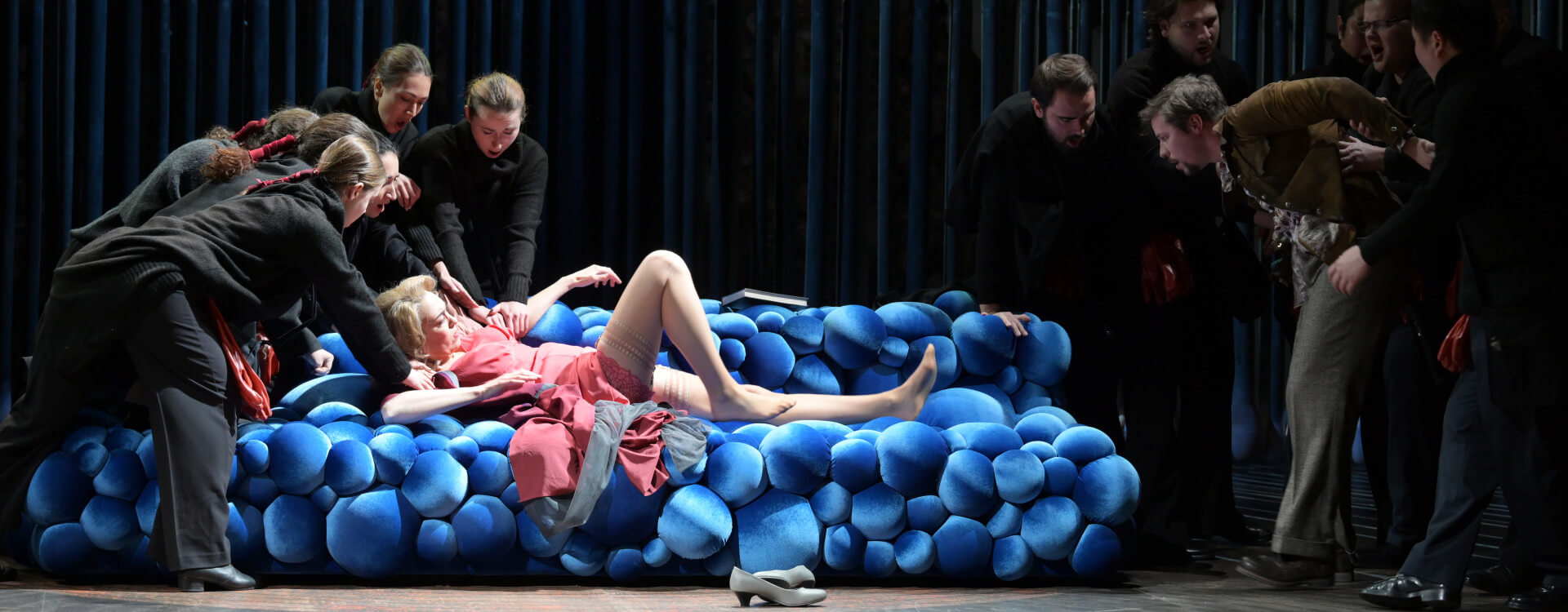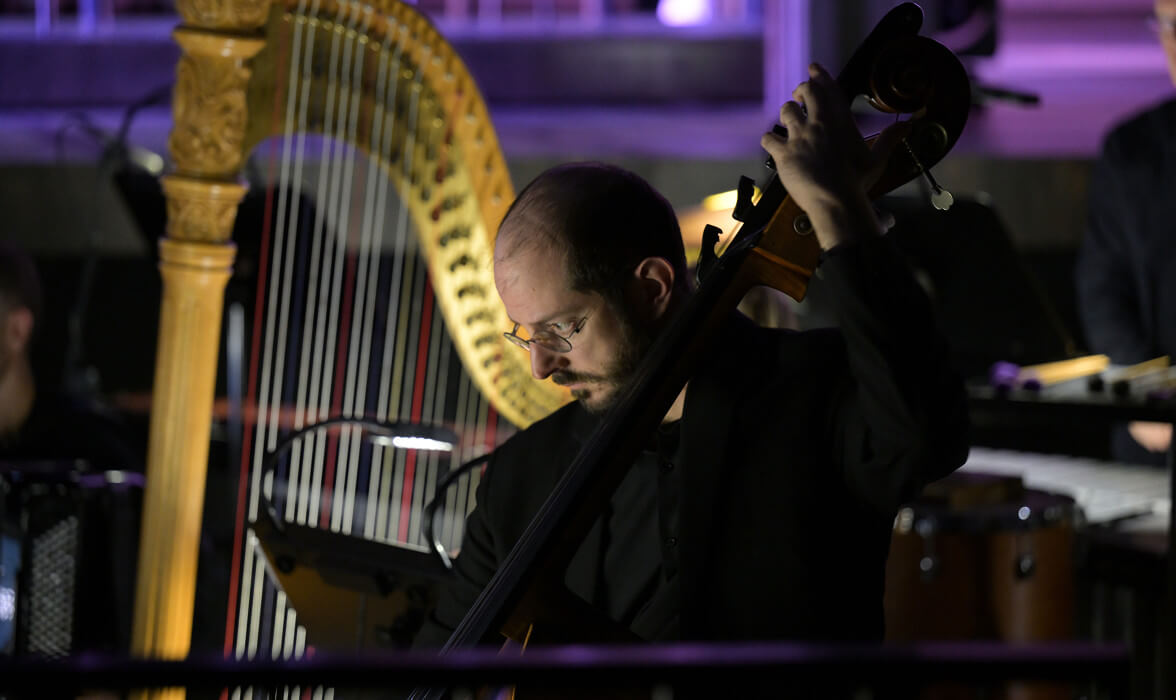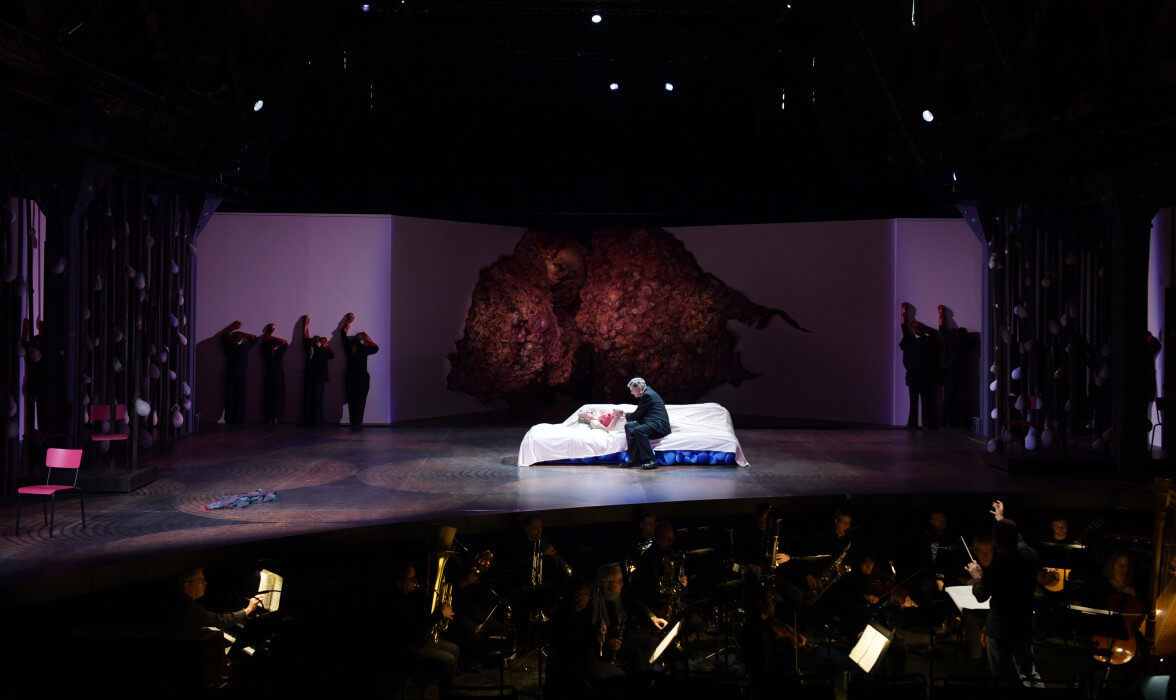Blühen
Opera in seven scenesA woman falls in love with a man young enough to be her son. She feels born again but just as her self-abandonment reaches its climax, is told that she's terminally ill. In his 1952/53 novel, The Deceived Woman, Thomas Mann depicted a paradoxical situation wrapped up in an alarming dialectic of life and death. Librettist Händl Klaus and composer Vito Žuraj call their opera in seven scenes ›Blühen‹, intensifying the idea even further, 70 years later, focussing on the protagonist, who they call Aurelia. Her relationship with her daughter Anna is even more ambivalent, with communication between the two women mirroring her own fears and insecurities. ›Blühen‹ is the second opera by the Slovenian composer Vito Žuraj.
The rhythmic and sonic precision of the rendition by Ensemble Modern and conductor Michael Wendeberg were impressive to hear, collectively and individually.neue musikzeitung, Wolf-Dieter Peter
[…]where the 75-minute musical theatre piece was now premiered under the title ‘Blühen’, with outstanding soloists, the Ensemble Modern doing its usual exquisite best (conductor: Michael Wendeberg) and a 12-piece, gender-balanced chorus acting as a commentator and companion through the piece.Opernwelt, Jürgen Otten
Žuraj translated this into wonderful sonic worlds, rendered by the excellently disposed Ensemble Modern, its large forces expertly led by Michael Wendeberg.Main-Echo, Bettina Kneller
Ensemble Modern under Michael Wendeberg as well as a vocal ensemble of twelve, according to the score […], bring Vito Žuraj’s music, which is as complex as it is meaningful and sensuous throughout, to life and illuminate it.BR Klassik, Jörn Florian Fuchs


